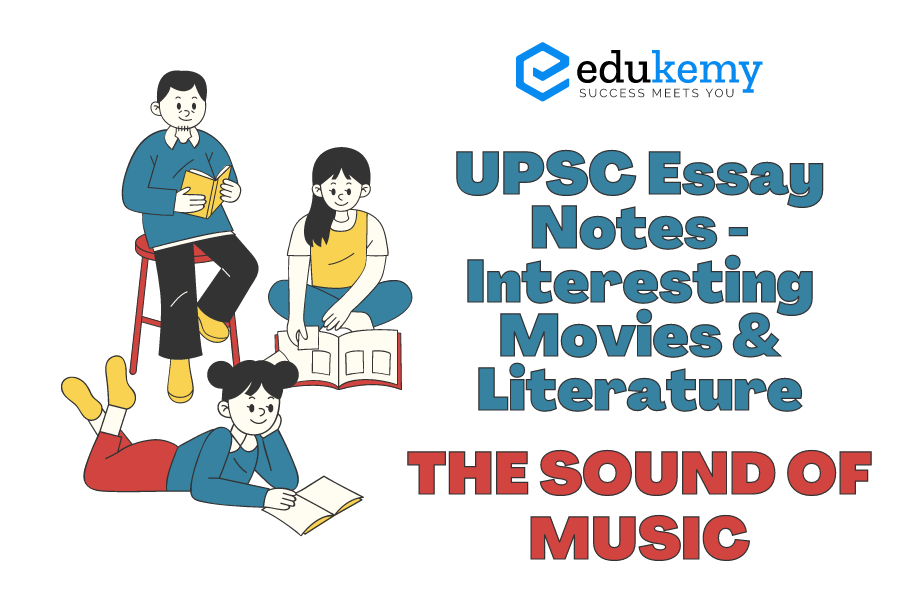
In the vast landscape of cinematic and literary treasures, certain works possess an ineffable charm that transcends generations, captivating audiences with their timeless appeal. Among these gems stands “The Sound of Music,” a cinematic masterpiece that seamlessly blends music, drama, and romance to weave a narrative tapestry that resonates deeply with viewers worldwide. Released in 1965, this iconic film directed by Robert Wise continues to enchant audiences with its enchanting melodies, compelling characters, and poignant themes of love, family, and resilience. Drawing inspiration from real-life events and the memoirs of Maria von Trapp, “The Sound of Music” not only entertains but also offers profound insights into the human spirit and the power of hope in the face of adversity. Through its enduring popularity and cultural significance, the film remains a testament to the enduring power of storytelling and the transformative impact of art on our lives.
This short story is based on true life events of world-renowned music artist Evelyn Glennie who lost her hearing power gradually. She was barely 8 years of age when her mother noticed that something was wrong with Evelyn. That very day, Evelyn was waiting for her turn to play piano. When she was called out, she did not respond. That was when they realised that her ability to hear had started to deteriorate. For quite a long time, she did not reveal her condition to family and friends. Later, it was her principal who requested her parents to visit a specialist. That was the time when she realised that there was gradual nerve damage due to which she could not hear properly. After this incident, many people discouraged her from learning to play musical instruments. Nonetheless, she did not give up and followed her passion. Her body could feel the vibrations when she tried her hand on xylophone. And there was no looking back. Later, she auditioned for the Royal Academy of Music and got one of the highest scores in the history of academy. Finally, she became a solo artist after working with an orchestra group for quite some time.
Contents
- 1 Moral
- 2 Frequently Asked Questions (FAQs)
- 2.1 Q: What is “The Sound of Music” about?
- 2.2 Q: Why is “The Sound of Music” considered an interesting movie?
- 2.3 Q: How does “The Sound of Music” relate to literature?
- 2.4 Q: What are some key literary elements present in “The Sound of Music”?
- 2.5 Q: How can “The Sound of Music” be relevant for UPSC essay preparation?
- 3 To get free counseling/support on UPSC preparation from expert mentors please call 9773890604
Moral
- The road of hard work and determination leads you to beautiful destinations.
- When life opens pandora’s box for you, start dealing with it rather than escaping.
- All the challenges are as big as you perceive them.
Frequently Asked Questions (FAQs)
Q: What is “The Sound of Music” about?
A: “The Sound of Music” is a beloved musical film released in 1965, directed by Robert Wise and based on the Broadway musical by Rodgers and Hammerstein. Set in Austria during the late 1930s, it follows the story of Maria, a young woman who becomes a governess for the Von Trapp family, ultimately bringing music and joy into their lives amidst the backdrop of impending war.
Q: Why is “The Sound of Music” considered an interesting movie?
A: The film is celebrated for its captivating story, memorable songs, stunning scenery, and compelling performances. It explores themes of love, family, courage, and resilience, making it a timeless classic that continues to resonate with audiences worldwide.
Q: How does “The Sound of Music” relate to literature?
A: While “The Sound of Music” originated as a stage musical, it draws inspiration from real-life events and is loosely based on the memoir of Maria von Trapp, “The Story of the Trapp Family Singers.” This connection to literature adds depth to the film’s narrative and characters, enhancing its cultural significance.
Q: What are some key literary elements present in “The Sound of Music”?
A: The film employs various literary techniques such as character development, symbolism, and foreshadowing to engage viewers and convey its themes effectively. For instance, the use of music as a metaphor for freedom and expression underscores the protagonist’s journey of self-discovery and empowerment.
Q: How can “The Sound of Music” be relevant for UPSC essay preparation?
A: Analyzing “The Sound of Music” through a critical lens can provide valuable insights into broader sociocultural themes, historical contexts, and human experiences. By exploring its narrative complexities and cinematic techniques, aspirants can develop their analytical skills and gain a deeper understanding of storytelling across different mediums.
To get free counseling/support on UPSC preparation from expert mentors please call 9773890604
- Join our Main Telegram Channel and access PYQs, Current Affairs and UPSC Guidance for free – Edukemy for IAS
- Learn Economy for free- Economy for UPSC
- Mains Answer Writing Practice-Mains Answer Writing
- For UPSC Prelims Resources, Click here

